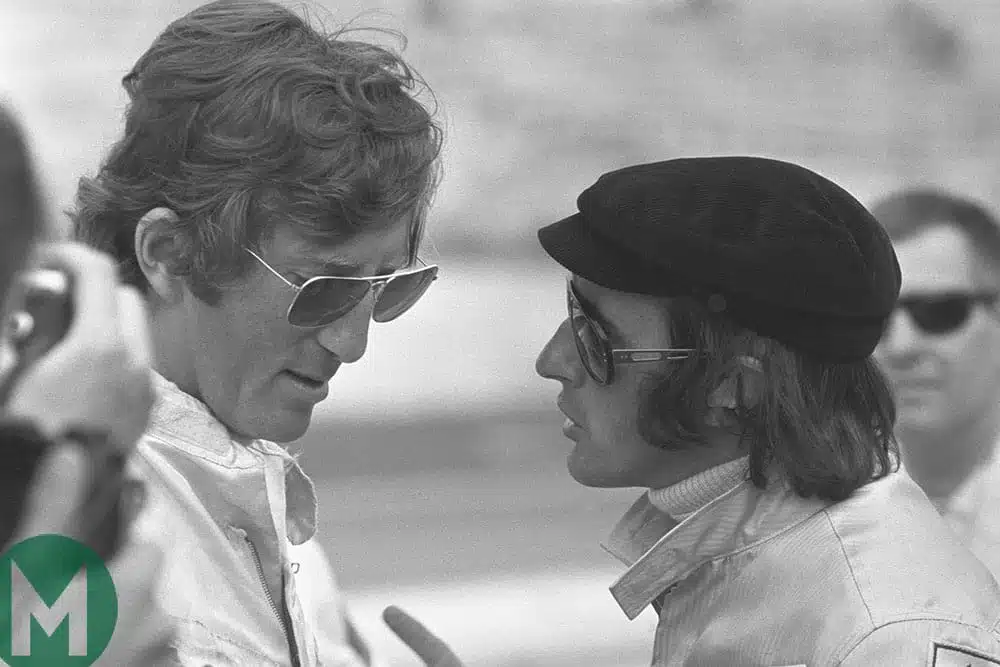♔ ‘Back then, a paddock argument ended with a handshake and a whisky. Now it ends with three lawyers and a PR statement.’
Once upon a time, Formula One was less corporate hospitality suite and more gentlemen’s club with petrol fumes.
Picture Jochen Rindt and Jackie Stewart: gladiators by day, dinner companions by night, swapping jokes rather than social media barbs.
Camaraderie was currency.
Compare that to today, where drivers orbit in brand-managed bubbles.
Curious? The contrast tells you everything about how the sport—and the people—have changed…
(Read On…..)
Late 1960s – Bonds Forged in Danger:
- Jochen Rindt and Jackie Stewart raced wheel-to-wheel at terrifying speeds, yet shared holidays, dinners, and genuine affection.
- In an era when death lurked at every corner, friendships weren’t optional—they were survival.
1970 – Brotherhood Amidst Tragedy:
- Rindt’s death at Monza underlined the peril. Stewart and his peers mourned not a rival, but a brother.
- Rivalries were fierce, but empathy stronger; the paddock resembled a close-knit club, not a travelling circus.
Fast-forward to Today:
- Drivers are brands with pulse rates, managed by entourages larger than entire 1960s teams.
- Camaraderie exists, but sanitised—selfies and soundbites instead of whisky and whispered gallows humour.
The Contrast:
- Rindt and Stewart’s era: raw danger, shared humanity, authentic bonds.
- Today: carbon-fibre cocoons, contracts, and caution.
- Formula One has gained polish and billions but lost some of the laughter that once echoed through its smoky paddocks.
♔ ‘The 1970s grid was smoky, dangerous, and full of gallows humour. The 2025 grid is smoke-free, risk-averse, and full of brand guidelines.’
![]()

